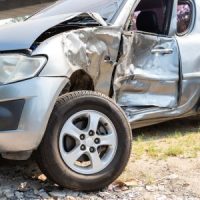Breaking Down an Alcohol-Related Car Crash

After trending downward for many years, the number of alcohol-related wrecks took a sharp turn the other way after coronavirus pandemic lockdowns. In 2021, the number of these incidents shot up to its highest level since 2007. Since traffic enforcement mostly stopped during 2020, many drivers picked up bad habits, such as driving while intoxicated. Usually, bad habits are easy to form and hard to break.
Even if these crash victims survive, they normally sustain extremely serious injuries, such as head injuries and internal injuries. As a result, a Seattle drunk driving accident lawyer can usually obtain substantial compensation in court for these victims. This compensation usually includes money for economic losses, such as medical bills, and noneconomic losses, such as pain and suffering.
First Party Liability
If emergency responders cite the tortfeasor (negligent driver) for DUI, usually based on the results of a blood test, a Seattle personal injury lawyer can use the negligence per se shortcut to obtain the aforementioned compensation.
This doctrine applies if a tortfeasor violated a safety law, such as the DUI law, and that violation substantially caused injury. This rule is usually available in these situations. Most law enforcement agencies have mandatory DUI arrest policies.
Frequently, a driver is not intoxicated according to the criminal law, but the driver is impaired according to the civil law standard. Intoxication means the complete loss of mental or physical faculties. Impairment is a partial loss of function. Evidence of impairment includes:
- Erratic driving before the crash,
- Physical symptoms, like bloodshot eyes,
- Medical tests that show the presence of alcohol in the tortfeasor’s bloodstream, and
- Statements the tortfeasor made to emergency responders and other third parties.
Physical symptoms at the time of alcohol purchase could also establish vicarious liability in these cases. More on that below.
A little evidence goes a long way toward proving impairment. The burden of proof in a civil injury claim is only a preponderance of the evidence (more likely than not).
Alcohol impairment breaches a driver’s duty of care. This duty requires drivers to be at their best, emotionally, mentally, and otherwise, when they get behind the wheel. If a breach of duty causes injury, compensation is available.
Third Party Liability
Intoxicated or impaired tortfeasors usually obtained alcohol from a bar, restaurant, or other commercial provider. This provider is financially responsible for car crash injuries if its employees illegally sold alcohol to a customer.
In Washington, it’s illegal to sell alcohol to obviously intoxicated customers. Car crash liability attaches if an alcohol-related wreck was a foreseeable consequence of that illegal transaction. A wreck is a foreseeable (possible) consequence of driving.
Other illegal sales include unlicensed and underage sales. Liability almost always attaches to underage sales. Traditional excuses, like “s/he had a fake ID,” usually don’t hold up in court.
Vicarious liability is very important in alcohol-related wrecks. Since the resulting injuries are so serious, many individual tortfeasors don’t have enough insurance to cover all losses. Dram shop liability gives a victim an additional source of recovery.
Connect With a Hard-Hitting King County Lawyer
Alcohol-related crash victims are entitled to significant compensation. For a free consultation with an experienced personal injury lawyer in Seattle, contact the Emerald Law Group. We do not charge upfront legal fees in these matters.
Source:
madd.org/press-release/epidemic-plaguing-americas-roads-reaches-historic-levels/
